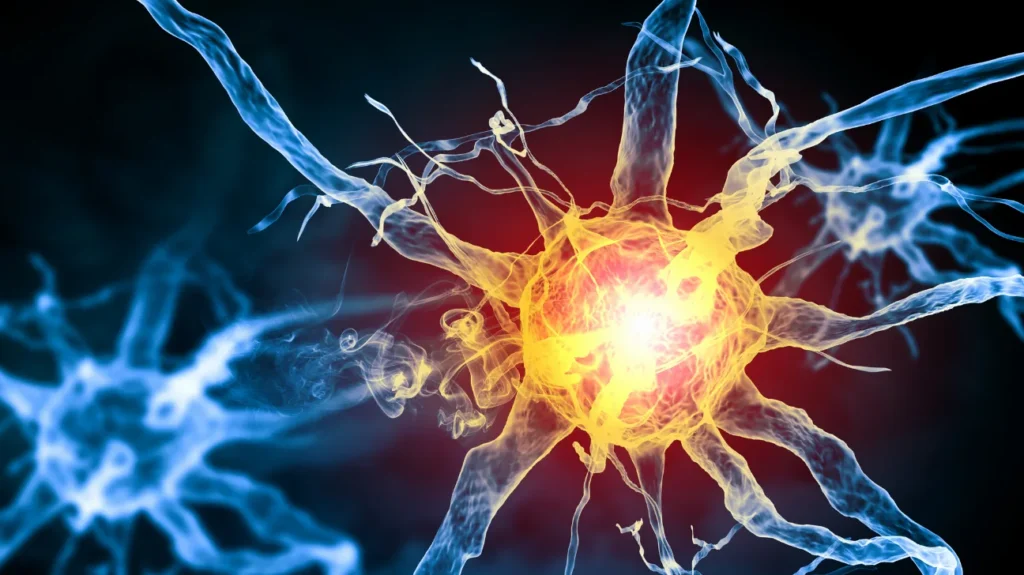Pink Root, scientifically known as Spigelia anthelmia, is a flowering plant belonging to the Loganiaceae family, primarily found in the tropical regions of the Americas. Traditionally utilized in herbal medicine, Pink Root has garnered interest for its potential nootropic benefits, particularly concerning cognitive enhancement and mental clarity. This article delves into the various aspects of Pink Root, including its source, chemical composition, physiological mechanisms, potential nootropic benefits, recommended dosages, side effects, interactions with other substances, and considerations for safe use as a supplement.
You May Also Like:
Deanol: Benefits, Dosage, Side Effects, Drug Interactions, and Other Important Information
Sources of Pink Root
Pink Root is predominantly sourced from the eastern United States, particularly in regions with moist, shady conditions. The plant itself can reach heights of up to 60 cm (24 inches) and is characterized by its slender stems and distinctive pink or red flowers, which bloom from late spring to early summer.
Historically, Pink Root has been used by Indigenous peoples for its medicinal properties, often employed as a remedy for various ailments, including digestive issues and parasitic infections. The primary part of the plant used for supplementation is its root, which contains bioactive compounds thought to contribute to its health benefits.
Experience Enhanced Mood with Amazon’s Best Stress Relief Supplements—Shop Now!

Chemistry of Pink Root
The active constituents of Pink Root include alkaloids, flavonoids, and saponins, which are responsible for its pharmacological effects. Spigeline is the most notable alkaloid that exhibits unique biochemical properties.
Spigeline
This compound is primarily credited with Pink Root’s potential therapeutic effects. Research indicates that spigeline possesses neuroprotective properties, which may contribute to its nootropic potential. Its chemical structure allows it to interact with various neurotransmitter systems, notably affecting cholinergic and adrenergic pathways, which are critical for cognitive function.
Flavonoids and Saponins
Flavonoids, present in Pink Root, exhibit antioxidant properties that help mitigate oxidative stress in the body. This is particularly relevant in the context of neurodegenerative diseases, where oxidative damage contributes to cognitive decline. Saponins, on the other hand, are known for their immunomodulatory and anti-inflammatory effects, further supporting brain health.
Physiological mechanisms of Pink Root in the body and brain
The physiological effects of Pink Root primarily stem from its bioactive compounds, which facilitate various mechanisms that can potentially enhance cognitive performance.
Neurotransmitter Modulation
The alkaloids in Pink Root, particularly spigeline, can influence the release and uptake of key neurotransmitters such as acetylcholine, dopamine, and serotonin. Enhanced cholinergic activity may improve memory, attention, and overall cognitive function, making Pink Root a candidate for nootropic supplementation.
Antioxidant Activity
The presence of flavonoids in Pink Root contributes to its antioxidant capacity, which protects neuronal cells from oxidative damage. By scavenging free radicals, these compounds may help maintain cellular integrity and function, reducing the risk of neurodegeneration.
Anti-inflammatory Effects
Chronic inflammation is implicated in numerous neurological disorders. The saponins in Pink Root may help modulate inflammatory responses, promoting a healthier environment for neuronal function and potentially enhancing cognitive performance.

Nootropic benefits of Pink Root
Given its unique composition, Pink Root may offer several nootropic benefits that warrant further investigation.
- Cognitive Enhancement: The modulation of neurotransmitter systems by Pink Root’s alkaloids may enhance cognitive function, particularly in areas related to memory and learning. This could be particularly beneficial for individuals experiencing cognitive fatigue or decline.
- Mood Regulation: By influencing serotonin and dopamine levels, Pink Root may help alleviate symptoms of anxiety and depression, thereby creating a more conducive environment for cognitive performance. Enhanced mood can lead to improved focus and mental clarity.
- Neuroprotection: The antioxidant properties of Pink Root could provide protective effects against oxidative stress, which is critical for maintaining brain health and preventing cognitive decline associated with aging and neurodegenerative diseases.
- Potential for Learning and Memory Support: Some studies suggest that the cholinergic activity facilitated by Pink Root’s active compounds could enhance synaptic plasticity, a fundamental process for learning and memory formation.
- Stress Resilience: Pink Root’s adaptogenic properties may help the body better manage stress. By regulating cortisol levels, the herb could promote a more balanced physiological response to stressors, potentially enhancing cognitive function and emotional well-being during challenging situations.
- Enhanced Focus and Concentration: The stimulation of neurotransmitter activity, particularly in the norepinephrine and acetylcholine pathways, may improve focus and concentration. This can be especially beneficial for tasks requiring sustained attention and mental endurance.
- Support for Neurogenesis: Some research indicates that Pink Root may promote neurogenesis, the process by which new neurons are formed in the brain. This can be vital for cognitive flexibility and adaptability, allowing individuals to learn new information more effectively and recover from brain injuries.
- Synergistic Effects with Other Nootropics: When combined with other nootropic substances, Pink Root may enhance their effects, creating a synergistic impact on cognitive function. This potential for combination therapy could offer more comprehensive support for mental performance and overall brain health.

Dosage and supplementation guidelines
While comprehensive clinical studies on Pink Root dosage are limited, anecdotal evidence and traditional practices provide some insights into effective supplementation strategies.
- General Dosage: For cognitive enhancement, a standard dosage range of Pink Root extracts is between 100 and 300 mg per day. However, it is essential to start at the lower end to assess individual tolerance before gradually increasing the dosage.
- Forms of Supplementation: Pink Root is available in various forms, including capsules, tinctures, and powdered extracts. Each form may have different bioavailability and absorption rates, so individuals should choose according to their preferences and health goals.
- Consultation with Healthcare Providers: Given the lack of extensive research on optimal dosing and long-term effects, consulting a healthcare provider before beginning supplementation is crucial, especially for individuals with pre-existing health conditions or those on other medications.
Side effects and safety
While Pink Root is generally considered safe for most individuals, some potential side effects may arise, particularly at higher doses or with prolonged use.
Common Side Effects
- Gastrointestinal Distress: Some individuals may experience nausea, vomiting, or diarrhea when taking Pink Root supplements, especially at higher doses.
- Allergic Reactions: Although rare, allergic reactions such as rashes or itching may occur in sensitive individuals. Anyone experiencing these symptoms should discontinue use and consult a healthcare provider.
- Dizziness or Fatigue: Due to its potential effects on neurotransmitter levels, some users may experience dizziness or fatigue, particularly during the initial stages of supplementation.
Amazon’s Essential Nootropic Picks for Enhanced Memory and Focus—Shop Now!

Contraindications
Individuals with certain health conditions should exercise caution when considering Pink Root supplementation.
- Pregnancy and Breastfeeding: The safety of Pink Root during pregnancy and lactation has not been adequately studied. Therefore, it is advisable for pregnant or breastfeeding women to avoid this supplement unless prescribed by a healthcare professional.
- Pre-existing Medical Conditions: Individuals with a history of liver or kidney disease should consult their healthcare provider before using Pink Root, as the active compounds may affect these organs’ functions.
- Concurrent Medications: Those taking medications that affect neurotransmitter levels, such as antidepressants or anti-anxiety medications, should approach Pink Root with caution, as it may potentiate or interfere with these drugs’ effects.
Interactions with other supplements and medications
Understanding potential interactions with other supplements and medications is crucial to ensure the safe use of Pink Root.
- Antidepressants: Given its effects on neurotransmitter systems, Pink Root may interact with selective serotonin reuptake inhibitors (SSRIs) or other antidepressants, potentially enhancing or diminishing their effects. Monitoring is advisable.
- Stimulants: When combined with stimulants (e.g., caffeine), Pink Root may lead to increased anxiety or restlessness due to heightened neurotransmitter activity. Care should be taken when combining these substances.
- Other Nootropics: Pink Root may synergistically interact with other nootropic supplements, such as racetams or choline sources, enhancing overall cognitive performance. However, users should monitor their responses to avoid overstimulation.
Maximize Your Sleep Quality with Amazon’s Top Sleeping Supplements—Shop Now!
Should You Consider Pink Root as a Nootropic?
Pink Root’s unique chemical composition and traditional use in herbal medicine position it as a promising nootropic supplement with potential cognitive enhancement benefits. Its mechanisms of action, including neurotransmitter modulation, antioxidant properties, and anti-inflammatory effects, provide a solid foundation for its potential use in improving brain function and overall mental well-being.
However, it is essential to approach Pink Root supplementation with caution, especially given the limited research on long-term effects and optimal dosing. Consulting with a healthcare provider is crucial to ensuring safety and efficacy, particularly for individuals with pre-existing health conditions or those taking concurrent medications.
In summary, Pink Root presents an intriguing option for individuals seeking to support their cognitive health through supplementation. By understanding its potential benefits, appropriate dosages, and possible interactions, users can make informed decisions about incorporating Pink Root into their wellness routines. As with any supplement, individual responses may vary, and ongoing research will continue to clarify its role as a nootropic in promoting cognitive function and mental clarity.

References:
- Effects of Spigelia anthelmia decoction on sheep gastrointestinal nematodes. Retrieved from: https://www.sciencedirect.com/science/article/abs/pii/S0921448817301608
- In vitro anthelmintic effects of Spigelia anthelmia protein fractions against Haemonchus contortus. Retrieved from: https://pmc.ncbi.nlm.nih.gov/articles/PMC5731696/
- Phytochemical and Phytomineral Status of Spigelia anthelmia Linn Leaves. Retrieved from: https://www.researchgate.net/publication/340274231_Phytochemical_and_Phytomineral_Status_of_Spigelia_anthelmia_Linn_Leaves
Important Note: The information contained in this article is for general informational purposes only, and should not be construed as health or medical advice, nor is it intended to diagnose, prevent, treat, or cure any disease or health condition. Before embarking on any diet, fitness regimen, or program of nutritional supplementation, it is advisable to consult your healthcare professional in order to determine its safety and probable efficacy in terms of your individual state of health.
Regarding Nutritional Supplements Or Other Non-Prescription Health Products: If any nutritional supplements or other non-prescription health products are mentioned in the foregoing article, any claims or statements made about them have not been evaluated by the U.S. Food and Drug Administration, and such nutritional supplements or other health products are not intended to diagnose, treat, cure, or prevent any disease.
Best Multivitamins on Amazon for Enhanced Brain and Body Health—Shop Now!



